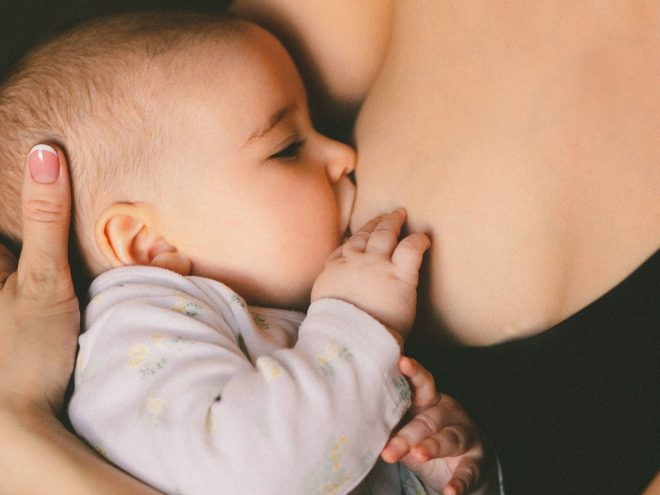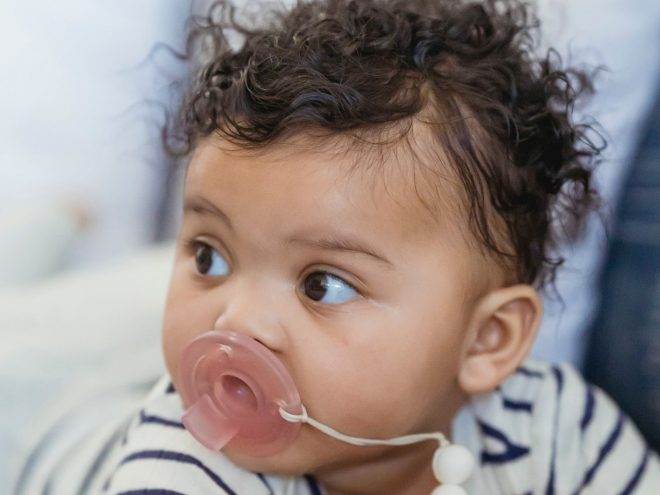Parents are usually willing to try anything to help their baby feel better. Out of every four babies, one of them is likely to develop colic, which is when they cry excessively for no apparent reason. Additionally, almost every newborn baby will have gas or stomach problems because their digestive and immune systems are still developing.
There are many methods to cure colic and stomach issues, one of those being gripe water. It has long been a remedy for a variety of medical situations. However, gripe water may not be the safest or most effective method to cure a medical problem.
What Is Gripe Water?
Gripe water is an herbal medicine that is available in liquid form. Mothers worldwide have used gripe water to relieve colic, fussiness and intestinal issues in their babies and children. There are many different brands of gripe water available over the counter.
The typical ingredients found in gripe water include dill, ginger, fennel, lemon, peppermint and chamomile. The mixture of herbs and spices is supposed to calm and soothe the children. Gripe water was banned by the United States Food and Drug Administration because it contained high amounts of sugar and alcohol. However, purified water, agave and ginger flavoring have replaced those.
Sometimes, people will confuse gripe water for gas drops. These are two very different products, though, as gas drops break up any gas bubbles in the digestive tract so babies can more easily pass gas. Gripe water, however, is designed to relieve upset stomachs.
How Does Gripe Water Work?
Usually, mothers give gripe water to babies within their first year of life. During this time is when babies experience colic, fussiness and upset stomachs. Even though many parents may swear by this method, no proven studies show it has a direct positive effect on the medical issue.
Initially, gripe water emerged in the 1850s and mothers and nannies in England used it quite often. However, this gripe water contained alcohol, which people thought relaxed babies. Now, though, thanks to research, giving alcohol to an infant can be toxic.
The herbs in gripe water, like dill, ginger and fennel, can help with stomach discomfort. Other ingredients, like chamomile, have a more calming effect. That’s why many teas may have chamomile infused in them so they can help adults relax and feel calm at the end of the day.
Gripe water should be a backup for other gas relief methods. Parents should get approval from their child’s pediatrician before using gripe water. Additionally, the doctor should confirm that the brand used is safe since the FDA disapproves of gripe water.
When administering gripe water, parents should follow the instructions on the packaging. These should provide dosing instructions and how often the baby can have gripe water. Generally, doctors recommend that parents use gripe water only until their baby is between four and six months old when colic and gassiness become less problematic.
Are There Any Gripe Water Side Effects?
There may be some side effects to gripe water. It’s generally safe and won’t cause any further problems in babies. However, because there are so many different herbs and spices involved in gripe water, a baby could have some allergic reaction.
After administering gripe water to a baby, the parent should look for the following:
- Watery eyes
- Vomiting
- Itchiness
- Hives
- Swelling of the tongue or lips
- Change in breathing
- Diarrhea
- Indigestion
- Fever
- Fussiness
- Constipation
- Teeth development because of the sugars in gripe water
Additionally, gripe water doesn’t offer any nutritional benefits. If a baby is given too much gripe water throughout the day, they can quickly get full. This means they may not be hungry for formula or breast milk. If they don’t eat or drink their proper food, they could miss out on crucial nutrition and ingredients they need to healthily and safely develop.
Gripe water can also interfere with good bacteria in the digestive system. Even though gripe water is supposed to help the digestive tract, it can end up harming it. The use of gripe water, especially in low-income families or countries, is a significant concern. For example, gripe water is quite popular in developing countries. Mothers in those regions may not nourish themselves enough to feed their babies, so they use non-nutritious gripe water to keep them full.
Again, it’s best to consult with a professional before giving a baby gripe water. It can be safe when properly used, but other remedies are much better for the baby’s health.
Alternatives to Gripe Water
Fortunately, there are alternatives to gripe water that are safer and more effective for babies. If a baby is incredibly fussy, has colic or has digestive problems, it’s best to work with a doctor or a pediatrician.
Below are some other remedies to try:
- Swaddle the baby so they feel secure and snug
- Use white noise to distract the baby
- Rub the infant’s tummy in circular motions
- Bicycle the baby’s legs to move gas
- Walk or bounce the baby
- Increase tummy time
- Cut out breastfeeding irritants like caffeine and spicy foods
The baby may need other medications if the problem persists.
Doing What’s Best for the Baby
Newborns require a lot of care, and parents may get advice from just about anyone about how to help a baby, whether it’s medically or in their development. However, parents need to do what’s best for their babies.





